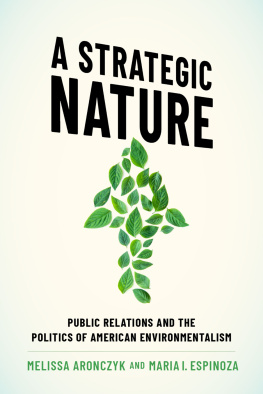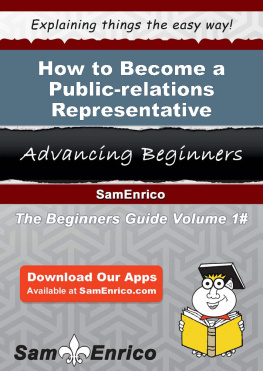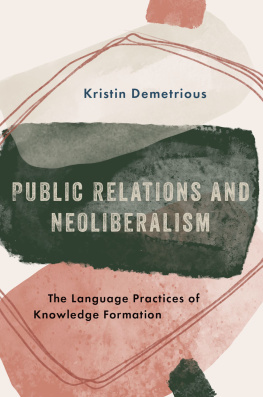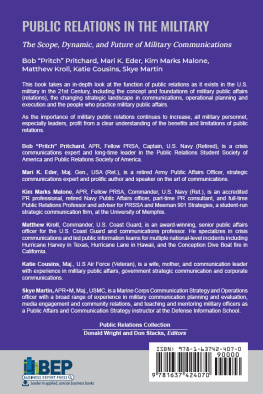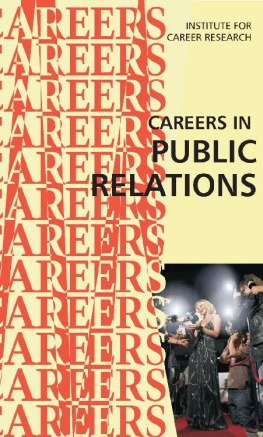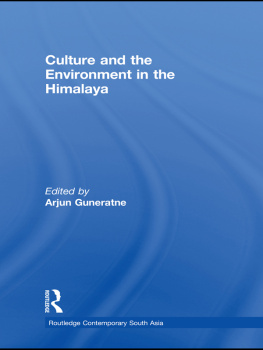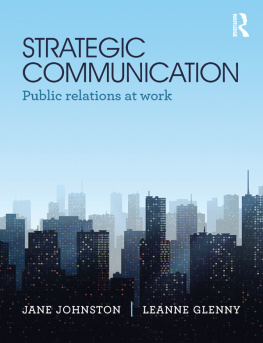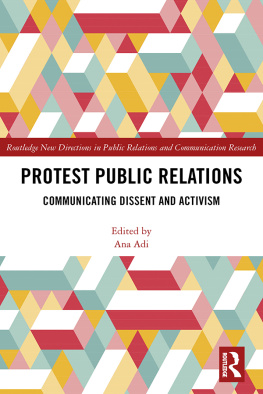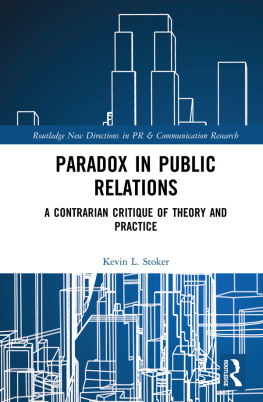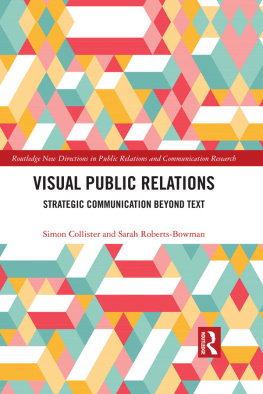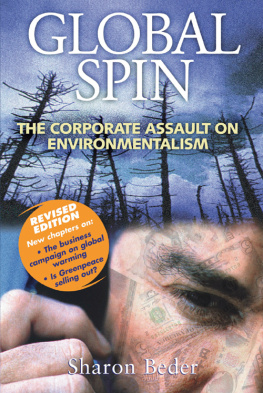A Strategic Nature

Oxford University Press is a department of the University of Oxford. It furthers the Universitys objective of excellence in research, scholarship, and education by publishing worldwide. Oxford is a registered trade mark of Oxford University Press in the UK and certain other countries.
Published in the United States of America by Oxford University Press
198 Madison Avenue, New York, NY 10016, United States of America.
Oxford University Press 2022
All rights reserved. No part of this publication may be reproduced, stored in a retrieval system, or transmitted, in any form or by any means, without the prior permission in writing of Oxford University Press, or as expressly permitted by law, by license, or under terms agreed with the appropriate reproduction rights organization. Inquiries concerning reproduction outside the scope of the above should be sent to the Rights Department, Oxford University Press, at the address above.
You must not circulate this work in any other form and you must impose this same condition on any acquirer.
CIP data is on file at the Library of Congress
ISBN 9780190055356 (pbk.)
ISBN 9780190055349 (hbk.)
ISBN 9780190055370 (epub.)
DOI: 10.1093/oso/9780190055349.001.0001
Contents
Figures
Tables
| ADR | Alternative Dispute Resolution |
| AEF | Andersson Elffers Felix Public Affairs |
| AFL | American Federation of Labor |
| AISI | American Iron and Steel Institute |
| CAA | Clean Air Act (U.S.) |
| CF&I | Colorado Fuel & Iron Company |
| CIIT | Chemical Industry Institute of Toxicology |
| CIO | Congress of Industrial Organizations (U.S.) |
| CMA | Chemical Manufacturers Association (see MCA) |
| CSI | Clean Sites, Inc. |
| D4CA | Data for Climate Action |
| EDF | Environmental Defense Fund |
| EIS | Environmental Information Systems |
| EPA | Environmental Protection Agency (U.S.) |
| GEMI | Global Environmental Management Initiative |
| ICC | International Chamber of Commerce |
| IEB | International Environmental Bureau |
| IPRA | International Public Relations Association |
| MCA | Manufacturing Chemists Association (founded 1872; renamed Chemical Manufacturers Association in 1978; renamed American Chemistry Council in 2000) |
| NAFTA | North American Free Trade Agreement |
| NAM | National Association of Manufacturers (U.S.) |
| NASA | National Aeronautics and Space Administration (U.S.) |
| NCPP | National Coal Policy Project (U.S.) |
| NEDA | National Environmental Development Association (U.S.) |
| NEDA/CAAP | National Environmental Development AssociationClean Air Act Project |
| NEDA/CWP | National Environmental Development AssociationClean Water Project |
| NIRA | National Industrial Recovery Act (U.S.) |
| NRDC | Natural Resources Defense Council |
| PBS | Public Broadcasting Service (U.S.) |
| PCEQ | Presidents Commission on Environmental Quality (U.S.) |
| PRSA | Public Relations Society of America |
| SDG | Sustainable Development Goals (United Nations) |
| SIPI | Scientists Institute for Public Information |
| SWOC | Steel Workers Organizing Committee |
| UNCED | United Nations Conference on Environment and Development |
| UNCHE | United Nations Conference on the Human Environment |
| UNEP | United Nations Environment Programme |
| USCIB | United States Council for International Business |
| US-ICC | U.S. Interstate Commerce Commission |
| WEF | World Economic Forum |
| WICEM | World Industry Conference on Environmental Management |
This is a book about the conditions of knowledge in the making of the natural environment as a public problem. To ask what we know and how we know it is an inherently social project. It relies in every instance on the willingness of others to share their own knowledge and understanding. It is in this spirit of inquiry that we acknowledge with deep gratitude the public that came into existence around this book.
To Lee Edwards, Jeff Pooley, Devon Powers, Thomas Rudel, Chris Russill, and Tim Wood, who read the entire manuscript and provided such thoughtful and generous comments. To Monika Krause, for support and perspective. To Bob Brulle, for his mentorship and guidance along the twists and turns of the research path. To Jeff Alexander, Philip Smith, Fred Wherry, and the members of the Center for Cultural Sociology at Yale University, who listened to and helped shape the earliest stirrings of this project.
To the librarians and archivists at the Rutgers and Yale libraries, the Wisconsin Historical Society, and the Smithsonian Institution Archives for their expertise; to Jamie Corey, Mahogany Lore, and Jayde Valosin for dedicated research assistance; to James Cook, Emily Mackenzie, Jeremy Toynbee, and Patterson Lamb for their exceptional editorial guidance; and to Kimberly Glyder for her stunning cover design.
To the many PR people, lobbyists, consultants, administrative and political officials, communications managers, industry representatives, nonprofit leaders, environmental advocacy groups, government agencies, activists, organizers, and media companies who allowed us to speak with and learn from them. To our families, who supported this project in more ways than they know.
To the National Science Foundation, whose funding made this project possible; and the School of Communication & Information and the Department of Sociology at Rutgers University for giving us additional resources, including the gift of time, to support this work.
Perhaps our greatest debt is owed to the public relations counselor E. Bruce Harrison (19322021). It is a complex debt, and not one that can be easily untangled. Harrison was a brilliant strategist who worked with hundreds of industrial and political leaders as well as journalists and media organizations from the 1960s through the early 2000s. Starting in February, 2017, after his immediate response to a tentative email request, we maintained a semi-regular correspondence until ill health befell him in 2020. In our visits together, our lunches, his introductions to old friends and allies, his emails and letters, he was unfailingly gracious and charming. His decision to share his company library with usa total of over 850 documents spanning his fifty-year careerwas at once an act of tremendous generosity and a personal desire to be remembered for his role in what he called sustainable communicationthe greening of industry through expert PR. Without him, this book could not have been written.
But without him, we also wonder whether the contemporary crisis of global warming would have become so dire. Advancing communication, rather than environmental action, as the locus of sustainability, Harrison showed relentless determination to protect and promote his clientsmajor polluters and environmental rule-breakers in the most contentious industries in the world, from oil and coal to tobacco and pesticides. His work has contributed in no small way to the misplaced belief in private sector strategies to solve the climate crisis despite daily indications of the failure of these strategies to do much besides promote themselves.

